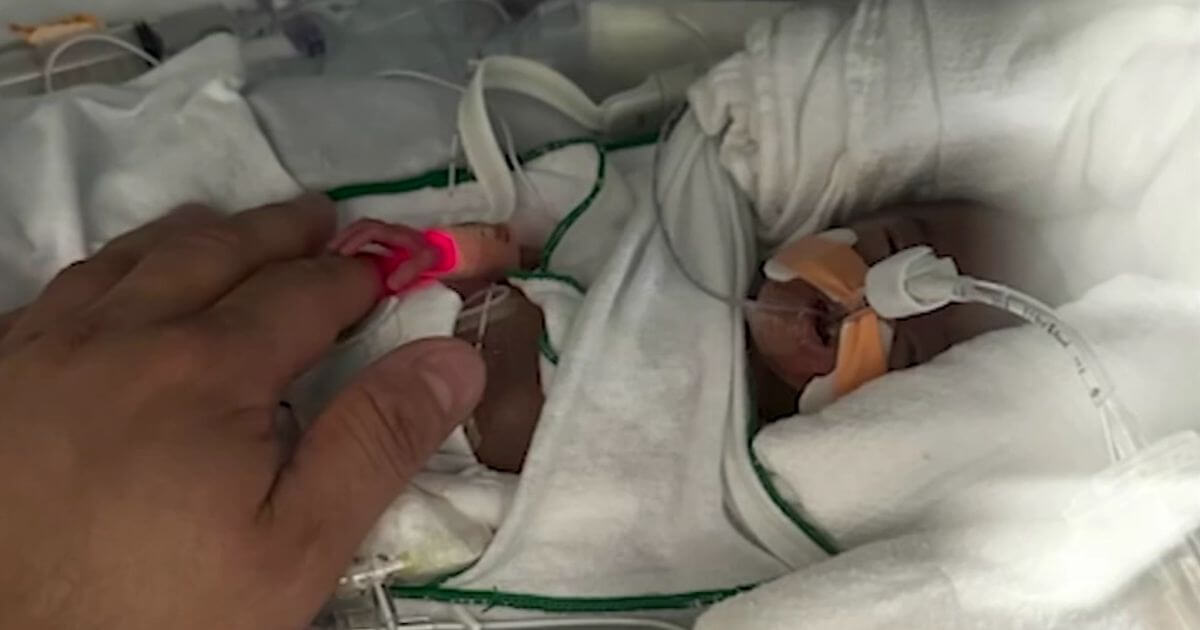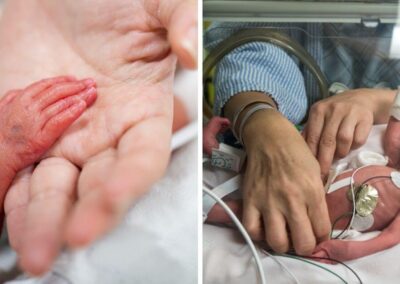A baby girl born before 26 weeks who weighed less than a pound is making amazing progress, now weighing 12 pounds.
Ellyannah Lopez was described by her mother Cecia as “nothing short of a miracle”, as her parents had tried for eight years to have a child. However, at 20 weeks gestation, Ellyannah was not receiving nutrients through the umbilical cord, and her mother’s blood pressure was very high. Ellyannah was therefore delivered early, before 26 weeks.
At less than a pound, she was one of the smallest babies that medical staff at the Cedars-Sinai Medical Center in Los Angeles had ever seen.
In spite of being so tiny, Ellyannah fought for life
When she was born, she was so frail that her parents were unable to hold her for 54 days. Her mother said “She was born so small that no one, none of the doctors in that operating room thought that she would cry. And when she did, I could hear everybody saying, ‘Is that[,] is that her?'”.
Dr Seth Langston, who works at Cedar-Sinai Guerin Children’s, said “Less than probably 1% of all births are delivered before 26 weeks. Most challenging for babies this early and this small to deal with are immature lungs, and therefore relying a lot on breathing support”.
Ellyannah was the first baby at the hospital to use a jet, which is a high-frequency ventilator.
Ellynnah is now seven months old and remains in hospital.
Dr Langston said “She still has a long way to go. You know, she’s still working on her breathing. She also has to figure out how to eat”. But her parents say that they can see the light at the end of the tunnel.
Premature babies like Ellyannah are demonstrating improving outcomes
A number of key studies in recent years have documented the improving outcomes for these extremely premature babies. A 2004 Swedish study found that neonatal survival outcomes between 22 and 25 weeks gestation significantly improve when neonatal hospital staff take a proactive approach in the care of premature babies.
A 2008 study based on a neonatal intensive care unit in London also found that neonatal survival rates at 22 and 23 weeks gestation had improved. In 1981-85, no babies who were born at these gestational ages survived to discharge. However, by 1986-90, 19% did and this increased to 54% in the period 1996-2000.
A study in 2022 found almost four out of five babies born prematurely between 22 and 28 weeks gestation survive to discharge from the hospital. It found that from 2013 to 2018, with infants born between 22 and 28 weeks gestation, “survival to discharge occurred in 78.3% and was significantly improved compared with a historical rate of 76.0% among infants born in 2008-2012”.
Spokesperson for Right to Life UK, Catherine Robinson, said “Baby Ellyannah has made brilliant progress over seven months. This story speaks to the resilience of human life and the amazing medical advancements that enable increasingly more premature babies to survive beyond what would have been expected even a few years ago”.












